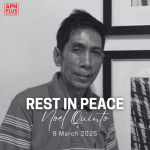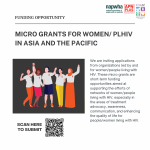Free HIV counseling and treatment is available worldwide; however, there are still a large number of individuals who remain deprived of Antiretroviral Therapy (ART). Due to delayed diagnosis, the effectiveness of ART is reduced. The most vulnerable population is found to be Men who have sex with men (MSM) and transgender. The perception of stigma, from others in their community or from the wider culture, is a barrier to testing. In this aspect, community-based Voluntary Counseling and Testing (VCT) seemed to be the best complementary strategy as it reduced stigma and discrimination and proved effective in reaching to individuals in the community who never got tested previously.
New community-initiated models are emerging and monitoring, evaluating and reporting on these innovations will speed the development of effective, evidence-based approaches in communities around the world. Therefore, APN+, being a regional SR under the Multi-country South Asia (MSA) Diversity in Action (DIVA) program, conducted a regional study in Bangladesh, India, Nepal, Pakistan and Sri Lanka to identify good practices in community-initiated VCT and how to come up with a potential formal model for South Asia.
The HTC study aimed to find whether community-initiated VCT methods existed in each country, how it was defined locally and if there were any discrepancies within the country/across countries; which type of VCT had been implemented in each country and why; and also to what extent such methods had led to increased uptake among MSM and transgender communities.
The study was conducted using the qualitative approach. During the implementation of the study, clinics or facilities, as well as, key informants were identified based on a set of criteria developed by the research team in Bangkok in consultation with country SRs. Each country also had focal points that were responsible for data collection processes, which included conducting Focused Group Discussion (FGD) of MSM and transgender community in selected sites across all seven countries.
Currently, all activities within the study have been concluded and a final draft report of the study is being reviewed by UNDP regional office, the PR of the MSA DIVA grants, before it is widely disseminated.




